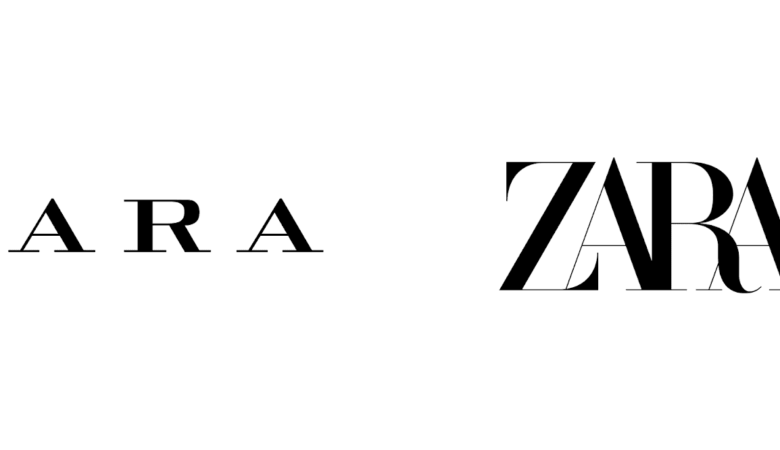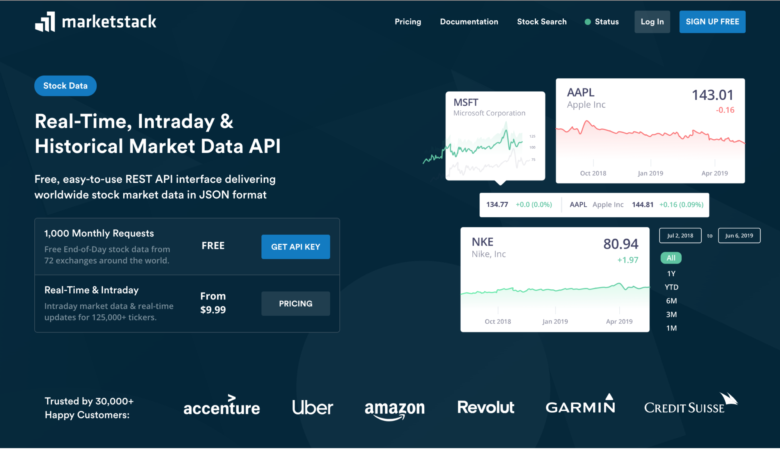Prior to selling my web agency last year and starting uGurus, a new venture to help web professionals become more profitable, I pitched a lot of website projects. Unfortunately for a lot of freelancers, I was the “other company” that the customer decided to move forward with. Like Beatrix vs. Master Pai Mei, it wasn’t a contest. If the title of this post led you to believe that I was going to outline a fair and balanced tit for tat, you might want to adjust your sitting position at this time. But…if you think my #1 competitor, as an agency, was other agencies, think again.
I’m not saying that over my tenure of pitching over 950 website projects I didn’t lose a couple of deals to freelancers, but they were far from my worst enemy. And if you are a freelancer, you should worry less about the big guys. This is not a David vs. Goliath tale. There is another villain out there who is much more powerful and elusive. Worse yet, many web designers don’t even know he exists.
Hobbyists and DIYers Need Not Apply
Every business, nonprofit, and person needs a website. The web is the center of our universe. It is how we transmit information, commerce, and revolutions. Combine that with the insanely low barrier to entry for web design and you get what we have today in our market: millions of web hobbyists making a mess of the web, and a small group of web professionals doing this for 100% of their daily diet.
I’m going to ignore the hobbyists in this discussion. I was there at one point in time myself, but hobbyists usually get opportunities because their direct family or friends need a website. Rarely does (or should) a business put any stock in a web designer with little or no portfolio that is working on their craft part-time at an extremely low wage. When I say “freelancer,” I mean the web pros that do this gig full-time.
Surprisingly there are only a few large companies in the space. Most of them work in the domain name and web hosting business with a do-it-yourself website solution. There aren’t a lot of web agencies with over twenty employees, let alone 200. Also, I never thought the DIY solution was much of a competitor either. A sane person wouldn’t be his or her own dentist or doctor right?
Whenever a prospective customer told me they were planning to build their own site and “Just wanted some help in case they got stuck,” I informed them, “When you want to get serious about your business, here is my card.”
The Freelancer Dilemma
Besides starting as a freelancer myself, and working with many freelancers over my sixteen year web tour, I actively consult with a handful of them, helping them grow as web professionals. The primary business objective of every freelancer I meet is to book as many billable hours as humanly possible, while spending as few hours as possible on operations and overhead. The problem is that most of them don’t know that this is their objective.
Many freelancers are constantly trying not to be freelancers. Whether they are trying to start their own virtual agency, or perhaps are aiming for a more traditional brick and mortar establishment. And in the pursuit of these bigger dreams, they have a hard time staying afloat. Let me give you an example. Freelancers love to spend countless hours building their own websites as if they are big companies. I know because I used to do it. I would use the word “we” on our website. Our own site would have a sitemap, just like an agency, with a bunch of pages talking about our company vision, team, and portfolio of projects. I would have lengthy pages about services. I would spend days creating content to rank for generic terms (that agencies were competing for).
It pains me to see so many freelancers trying to compete head on with agencies instead of leveraging their competitive advantage (their extraordinarily low overhead). Many freelancers approach their own marketing as if they need hundreds of customers. The reality is a typical freelancer could make a really good living from only ten or twelve projects per year. With that small of a number, you barely need a website let alone a search marketing campaign.
Most freelancers I know would fare much better if they focused their time selling their services to agencies. The freelancer’s goal should be to create channels of constant and consistent business, versus trying to compete for the end-clients themselves. Focus your message directly at other web, marketing, public relations, and advertising agencies. Showcase your nimbleness and expertise to people that understand the craft. Instead of pursuing end-clients that take countless meetings to close a single deal–and by the very nature require a massive amount of overhead to manage–pursue a small group of agencies to become your salesmen and project managers.
Freelancers that successfully do this avoid the pitfalls of spending all of their time doing non-billable things like selling new clients and project management. By essentially “outsourcing” your sales and project management, you will pack more billable hours into your weekly schedule. However, rare is the freelancer website that speaks directly to this model. There is always one foot out the door hoping to get both the agency-channel customer and the direct client. By having two possible customers, you leave both prospects not sure exactly who you are targeting.
The Agency Advantage
At the peak of my agency, I was selling full-time. I was able to work on my sales craft like any dedicated professional athlete: daily training, expert coaches, and participation in a lot of competitions (deals). By having a team, each person gets to focus on his or her individual specialty.
This concept is called Division of Labor and is backed by economic theory as the most effective way to solve problems. Besides just being able to focus 100% on my job of acquiring new accounts, I knew a few sentences that, delivered in the right way, would make sure the business owner wouldn’t dream of choosing a one-man-band over us.
“If I get hit by a bus, or more likely, am out sick or traveling–don’t worry, my team will pick up the slack. We’ll always make sure you have a point of contact.” or “We don’t rely on a one-person production process, we have an expert designer, expert developer, expert copywriter, expert photographer, expert videographer, and expert project manager to produce the best results possible.” or “While we might be a little more expensive, a typical full build out with us only takes eight weeks because we are able to leverage a team-based process with multiple people working on your project at the same time.”
I wouldn’t spend a lot of time on this, but typically a couple of well placed pre-rebuttals would establish that I wasn’t an “I” but a true “we.” A major factor in any purchase is mitigation of risk. Basically you have to address the fact that the customer is putting up several thousand dollars and you have to make them feel like it isn’t disappearing. For the average agency, this is a slam dunk.
The True Enemy
Even though I believe agencies will always outsell freelancers when placed head to head, the real enemy is a common one: no decision. I lost deals to him more often than any other reason–including competing agencies and freelancers. Businesses, nonprofits, and government agencies choose “no decision” more often than they choose “the other guy.”
Practicing agencies and freelancers face this problem without even knowing it. For years I was bent over who I was competing with on every deal. I used to even ask my prospects for competing proposals (this is a taught sales technique that I stopped employing because you end up focusing on the wrong thing).
Instead of being focused on my customer, I was worried about who I was up against. This obsession distracted me from the real (and invisible) competitor of inaction. Organizations choose nothing because of a few reasons:
- Talking to web companies was exploratory at best (they just wanted options).
- No one addresses their problems well enough to warrant the investment.
- They were unable to find a good match and will restart the search.
- They aren’t educated enough on the problems and potential solutions (everyone sells to the proposal too much versus properly educating their customers).
- Their needs and pain aren’t enough to take action.
Whatever the reason, the reality is freelancers and agencies don’t need to worry about each other. They need to focus their energy on the person who is directly in front of them: the customer.
Spend your time understanding their pains and problems. Get your prospect to fess up to the real reasons they are evaluating a website project. Ask about their buying process, if they’ve budgeted for this type of investment, and if they have ever engaged someone to help before.
I found that when I started worrying about this real competitor, I thought much less often about the other companies in my area. I also spent a lot more time with each prospective customer prior to signing a deal to make sure they truly understood my solution and more importantly, I understood them.
So if you are a freelancer wanting to slap me upside the head, take a moment to thank me for showing you the five point palm exploding heart technique.

 Image from
Image from 
 Image from
Image from  Image from
Image from 



It’s kinda funny… I get most my clients because they leave people who say things to them such as, “When you want to get serious about your business, here is my card.” 🙂
So you primarily work with business owners that build their own websites?
This one of the best sites I found out today when i was looking for some inspiring blogs to to learn about WordPress designing and how to lessons! Just one question how have this blog been actively running on the net? Thanks for ten great knowledge sharing guys.
You’ve got a project in mind, you know you need to hire a professional to get the job done, but you’re not sure whether to hire a freelancer or an agency. You’ve heard that you can save a lot of time and money by looking online for a freelancer, so what’s stopping you?
Quality & Trust. where you find these two for that, my suggestion.
It depends what the users wants. Both the options are suitable.
As in my view the agency charges more for the designing compare to free lancers.
Excellent post Brent, freelance always be on top over agency but than you must have mutual contacts or know the freelancer personally to trust on him and about his work.
I thought this post was excellent and very informative! Thanks 🙂
It really goes to one point – who can we trust? Single freelancer or “well known agency” that will always deliver no matter what? Sometimes people pick wrong/bad freelancer and after having bad experience they will never pick freelancer again! Also bigger companies will always pick agencies instead of freelancers because they’ve got huge budget and expectations that have to be met. It’s one man vs 4 agency designers, sales man, creative director etc.
The perfect solution would be working as a freelancer for few agencies so you don’t have to deal with customer – just finish your project send invoice and wait for payment.
Brent, thanks for writing about your experience from an agency perspective. You are so right that I as a business consultant and web designer only need a small amount of good projects per year. I’ve never thought about working with an agency on a project – interesting idea. I could see that as a good way to get more experience working with bigger companies and teams.
Thanks again – Caleb.
Thanks for the great article, Brent! The way I see it is if you’re passionate about this field and you’re always finding ways to get better at it, then you really don’t have to worry about the competition. IMO. 🙂
Most definitely spot on!
Nice portfolio site btw.
I prefer freelance where agency can feel like a production line at times its nice to have your stamp on a design other than an account manager saying it should be like this or like that.
FANTASTIC advice to freelancers. I’m director of a digital agency for small businesses in New Zealand with 1200+ clients so your points really resonated. Freelancers have a tough job, but can deliver real value. They’re just typically not the best at selling their solution, especially head to head against large agencies.
I’m just about passing the beginner stage in the world of web design… better late than never, and this is what I’ve decided I want to dedicate my time to.
The main point I’ve picked up in your article, Brent, is the importance of customer focus. Find out what they need (not want). When you show an interest in what they’re saying, they’ll be more inclined to hear what you’re offering.
I’ve also learned a thing or two about how and where to ‘sell’ my services.
Many thanks.
Bingo! Keep focused on your customer and you’ll never go wrong. Agencies are just great customers for those starting out or freelancing. Leverage their full time sales force so you can maximize your production hours!
Well, mostly you are right.
But there are 2 things:
1. Clients that pay big money usually want not just work, they want full service (such as comunication, project managment, support etc). And they work with agencies because they get this services and pay more, sometimes much more for the same work.
2. So if you want to take big project, you need to become an agency. Well actually you should have the PM and developer at least. And actually that’s how small agency works. And that’s normal.
So the idea actually is not about to become an agency but about do not trying to looks like an agency while you are working alone.
Hi Brent,
First of all I want to thank you for this article and sharing your experience with us. You’ve reached the point with your observations. I’ve started my freelance business on local market in 2009 with copywriting containing a log of “we”, process description, detailed offer information, etc. Later, in 2011, I’ve decided to break with this kind of picture and started naming myself a freelancer. Actually I didn’t notice any changes in my business since that time but today I’m in the middle of taking another strategic decision. For some time I’ve been thinking about going back to “we” world where I’d rather pretend being BIG. Thanks to your words I’ll try another option: I’m going to identify my strongest points and I’m going to prepare strategy, scenarios, and offer including my strongest skills dedicated to Web Agencies, and try follow your advices. Thanks to your article I’ve identified my weakness as a Jack Of All Trades which picture I want to break off. Right now I’m eagerly waiting to start working with concept and fast change my approach to a new one.
In the end I’d like to state that I’ve pretty bad experiences from working with agencies but this might be caused by my Jack Of All Trades picture where agencies were hitting me with a projects that I was not prepared for because I didn’t have a specialization. I priced them too low which makes my work inefficient for my personal budget.
PS. The only thing I’ll miss is “my brand” which will be hidden below BIG agency.
Thanks!
BR
Sebastian
Awesome awesome post!
Apathy is the true business killer. I talk about it all the time!
Growing the business, I spent the first few years doing all the content creation, design, selling, admin, everything.
Then I brought on a designer and cut my time to content creation and selling. Then last year I brought on a writer. Now I sell full-time.
I kept it simple. Branded my name as my business, that way I only needed to market one entity. I also specialize in one vertical because I have 20 years experience with that category offline.
I know I have made the right choice because we grow every day, month and year.
Growing and adding both writers and designers and couldn’t be happier!
Great post Brent!
Sometimes, the freelancer is considered a hobbyist and can not break that mold no matter how much willingness and drive they show – they don’t have the work to gain more experience and no-one is willing to give them the chance.
I think it would be frustrating, would it not?
Such a productive post!
My pet peeve is freelancers using ‘we’ on their websites. I think you’re absolutely right.
Focus on the right things.
You said that “Freelancers love to spend countless hours building their own websites”, the reason behind this is simple, every employer wants reliable and capable one for their work, and for this they navigate through your reference website, looking for your portfolio, so everyone wants to have exceptional portfolio, this is the reason why freelancers spend lots of time on their websites.
If you are new(freelancer) in the market then everyone know that its how difficult to win a single project.
Awesome article Brent! It really opened up some ideas for my freelance web design business. Funny I have made all the mistakes you mentioned here. To tell you the truth I’ve really stepped back from taking clients as they never have content and their website ends up taking months and far too many hours to complete. Getting some work from an established agency sounds like the better way to go.
Bobby C.
inclouddesign.com